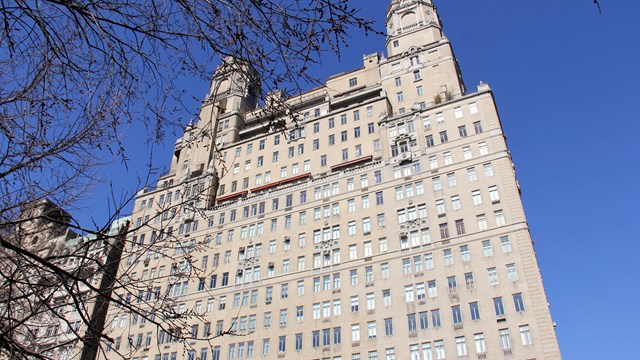—A Concerned Unit Owner
“Developed in the context of commercial enterprises, the business judgment rule prohibits judicial inquiry into actions of corporate directors “taken in good faith and in the exercise of honest judgment in the lawful and legitimate furtherance of corporate purposes.”... So long as the corporation's directors have not breached their fiduciary obligation to the corporation, “the exercise of (their powers) for the common and general interests of the corporation may not be questioned, although the results show that what they did was unwise or inexpedient. [citations omitted]”
This case has been applied to many different types of board decisions. In fact, the Appellate Division (second highest Court in New York State) applied the same standard in the case of Greene v. Levine, 57 A.D.3d 627, 871 N.Y.S.2d 187 (2nd Dept., 2008) which related to a board decision concerning a budget. That Court held:
“In reviewing the reasonableness of the Association's exercise of its authority, “absent claims of fraud, self-dealing, unconscionability, or other misconduct, the court should apply the business judgment rule and should limit its inquiry to whether it was taken in good faith and in furtherance of the legitimate interests of the corporation.” [citations omitted]
Likewise, the business judgment rule has been applied with respect to a board's determination to repair common areas. Schoninger v. Yardarm Beach HOA, 134 A.D.2d 1, 523 N.Y.S.2d 523 (2nd Dept. 1987) .
Basically, when a unit owner purchases in a co-op, condominium or homeowners association, said unit owner gives up certain rights which would otherwise exist and agrees to be governed by a board in accordance with the community's governing documents. In that regard, a concern over “aesthetics” is one which is likely to be more of a discretionary action by the board. On the other hand, an issue of safety would require a further analysis as to what the governing documents require.
For instance, if a condominium's governing documents require the Board of Managers to purchase a fire insurance policy and the Board of Managers fails to obtain any fire insurance in accordance with its bylaws, then that board would be held liable for a breach of their fiduciary duty. The key element here would be the safety issue, (as well as a specific requirement under the governing documents of the community). However, the Court in Acevedo v. Town 'n Country Condo Sec. I, 51 A.D.3d 603, 857 N.Y.S.2d 691 (2nd Dept. 2008) held that a condominium's Board of Managers did not breach its fiduciary duty by obtaining allegedly insufficient insurance in accordance with its governing documents when it hired a broker to obtain a full policy.
Two key cases decided in the Second Department within the last month illustrate the point that a board must follow its governing documents in order to be protected by the business judgment rule.
Indeed, in Yusin v. Saddle Lakes HOA, Inc., ____ N.Y.S.2d ____ , 2010 WL 2106234 (2d Dept. 2010), the Court held that the business judgment rule did not apply with respect to a decision to amend a house rule regarding pets where the bylaws were not followed, while in Skaras v. Victoria Hill Condominium, 2010 N.Y.Slip Op. 04175 (2nd Dept., 2010) the Court held that the business judgment rule applied regarding a challenged parking fine because the board followed the bylaws in amending same.
Thus, as long as the board is following its governing documents in good faith and relying on its professionals to advise regarding business decisions, a board determination will be protected by the business judgment rule (even if the results illustrate that the determination was wrong or unwise). Levandusky supra at 538; Acevedo supra; Gordon v. Nationwide Mutual Ins. Co., 30 N.Y.2d 427, 285 N.E.2d 849, 334 N.Y.S.2d 601 (1972) cert. denied, 410 U.S. 931, 93 S.Ct. 1374 (1973); Spivale v. 10 W. 66th St. Corp., 291 AD2d 234, 736 N.Y.S.2d 879 (1st Dept., 2002).
Be aware, however, if there are clear safety risks that are obvious and the board does not address them but either was or should have been aware of same, the board can be held liable for any injuries or damages that occur due to their failure to make the repairs. It is important to note, if any of the items involved require compliance with a law and same are ignored, the board members may be held personally liable for same. I refer you to the case of People v. Premier House, Inc. 662 NYS2d 1006 (1997) where a board failed to install window guards and unfortunately someone died. The Court held the board members could be held personally liable for same.
There is, however, a remedy for unit owners when they believe a board is not performing their responsibilities. The unit owners get to elect the board members. This is typically done at an annual meeting each year. If matters are serious enough, unit owners might also be able to petition to require the board to call for a special meeting of unit owners to remove the board member(s) who are not complying with the governing documents or are failing to exercise their fiduciary duties. You need to review your community's bylaws carefully regarding your rights and the procedures for accomplishing this. In most condominiums and homeowners associations, you must have “cause” to remove a board member.”







6 Comments
Leave a Comment